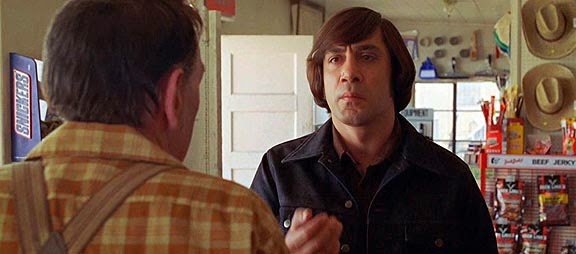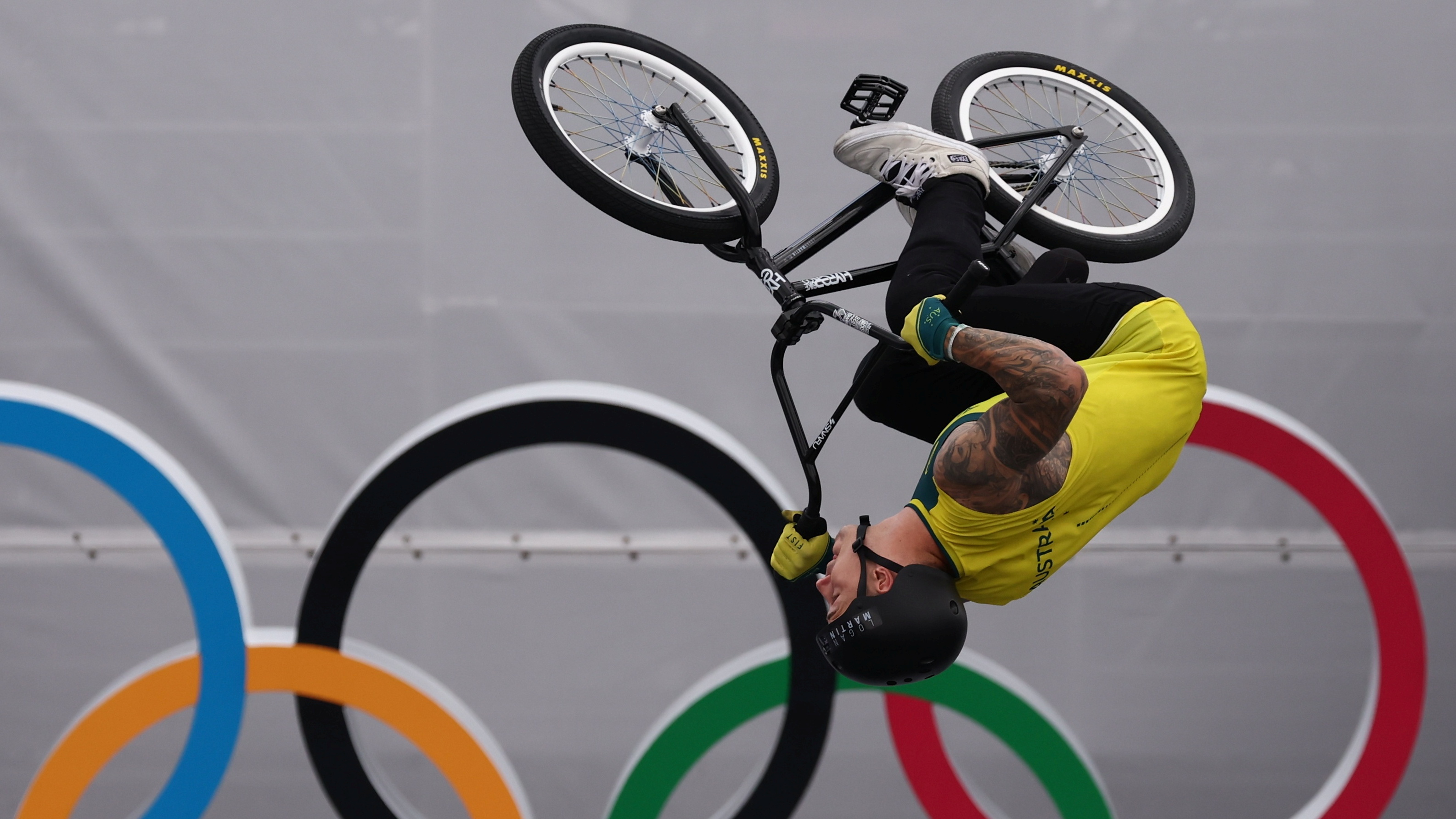What’s the most you ever lost on a coin toss?
Anton Chiguhr/No country for old men
Yesterday, for the Buffalo Bills, it was a chance to get to the pinnacle of professional football, Super Bowl LVI. And, if an overnight poll is accurate, I, like 80 percent of Americans, felt cheated and was ready to write a blog about the necessity of changing the league’s overtime rule. Letting the game end with Josh Allen sitting on the bench seemed as unsatisfactory as deciding the FIFA World Cup on penalty kicks.
However, that rush to judgement had the same value as the first draft of an angry email that is better left unsent. There had to be a reason the owners have not changed the rule even though it has been raised after other similar situations, the most memorable being the Kansas City Chiefs, last night’s beneficiaries, having been victimized in the same manner by Tom Brady and the New England Patriots in the 2019 AFC championship game. Surely one of the many pundits on ESPN or the NFL Network would make the case for maintaining the status quo.
Much of the analysis focused on the need for an overtime rather than the extra period itself. If only one of the two teams had played defense any time in the fourth quarter. Or the choice by Bills coach Sean McDermott not to put the final kick0ff in play to consume a few of the precious 13 seconds still on the clock.
When it came to the overtime rules themselves, advocates pointed to the fact there are 11 players on both sides of the ball. ESPN’s Michael Wilbon put it most distinctly, “When you lose the coin toss, go out there, play some damn defense and get the ball back for your offense.” But the more I thought about it, there are two other reasons to support the current rule which seemed to escape those who make their living parsing sporting events.
First, if the Bills had a chance to go on offense following the Chief’s opening OT touchdown, the outcome would not have changed. Both teams were scoring at will as evidenced by four lead changes and a tie in the last two minutes of regulation play. Yes, Allen most likely would have steered the Bills downfield and tied the game at 43-43. But does anyone really believe Patrick Mahomes, facing a winded Bills defense, would not have put the Chiefs in position to kick the winning field on the next series?
But the second reason may be the most important. Facing a seven point deficit, the trailing team is given an advantage counter to the dynamics of play under most other conditions. From the time their offense takes the field, they are given one additional opportunity to make each first down. The coach does not have to decide if he is going to punt or kick a field goal on fourth down. He is going to call a play whether it is fourth and one yard or fourth and 20. In contrast, the team that wins the coin toss does not have that luxury. For them, fourth down requires a decision. Can their defense hold the opponent if they punt or kick a field goal? Do they risk a fourth and short in their own territory if they doubt their defense will give them a second chance at victory? They are bound by the tactical decisions on which games are usually decided. Decisions that make Monday morning quarterbacking a sport in its own right.
Like most sports these days, football has evolved into a contest based on specializations. The days when participants play on both sides of the ball are a distant memory. Linemen are rotated depending on the situation. Teams like the New Orleans Saints have tested the concept of revolving quarterbacks. Special teams now have different punters and place kickers. For field goals, the regular center is replaced by a long snapper.
Keep the rule and let the coaches and players adapt to the situation. Maybe you develop a special OT defense with a different lineup. Just imagine the commentary this morning if McDermott had brought in his OT defense and stopped the previously unstoppable Mahomes with an innovative formation or pass coverage. No one would be calling for a rule change.

To do anything otherwise puts too much importance on the coin versus the players or the game. In the scene from which the opening quote is drawn, Anton Chugihr (Javier Bardem) tells a gas attendant, who is unaware Bardem’s character is a psychopathic murderer, to call the flip of a quarter. Not sure what is at stake, he chooses “HEADS” to which Chugihr looks at the coin and says, “Well done.” As he gets ready to leave the gas station, they have the following exchange.
Chugihr: Don’t put it in your pocket. It’s you lucky quarter.
Attendant: Where do you want me to put it?
Chugihr: Anywhere not in your pocket. Or it’ll get mixed in with the others and become just a coin. [Long pause.] Which it is!
For what it’s worth.
Dr. ESP

 Consider the recent exploits of the golfer we love to hate Bryson DeChambeau as an example of how expectations can change in a matter of hours. During the second round of the BMW Championship, after an eagle on the 16th hole, DeChambeau was in reach of a 59 with one birdie on either of the last two holes. Missed putts of 17 feet on the 17th and six feet on the 18th resulted in “only” a course and tournament record 60, 12 strokes under par. In the post-round interview, DeChambeau did not hesitate to voice his disappointment about misreading the putt on 18. “I wanted to make it so bad.”
Consider the recent exploits of the golfer we love to hate Bryson DeChambeau as an example of how expectations can change in a matter of hours. During the second round of the BMW Championship, after an eagle on the 16th hole, DeChambeau was in reach of a 59 with one birdie on either of the last two holes. Missed putts of 17 feet on the 17th and six feet on the 18th resulted in “only” a course and tournament record 60, 12 strokes under par. In the post-round interview, DeChambeau did not hesitate to voice his disappointment about misreading the putt on 18. “I wanted to make it so bad.” Which brings me to my last point about expectations. Americans should heed the axiom, “Don’t let the perfect be the enemy of the good.” [NOTE: The origin of this phrase is attributed to Voltaire who wrote in his Philosophical Dictionary, “The best is the enemy of the good.”] Every PGA and LPGA tour player would love to shoot an ideal score, 16 birdies and a couple of eagles for good measure. But they have not given up the game because it is, for all practical purposes, out of reach. Instead, they yell, “FORE,” to acknowledge the errant shot, look for opportunities to recover and know the final tally never rests on a single stroke.
Which brings me to my last point about expectations. Americans should heed the axiom, “Don’t let the perfect be the enemy of the good.” [NOTE: The origin of this phrase is attributed to Voltaire who wrote in his Philosophical Dictionary, “The best is the enemy of the good.”] Every PGA and LPGA tour player would love to shoot an ideal score, 16 birdies and a couple of eagles for good measure. But they have not given up the game because it is, for all practical purposes, out of reach. Instead, they yell, “FORE,” to acknowledge the errant shot, look for opportunities to recover and know the final tally never rests on a single stroke.
 Instead of a one-off regular game in a neutral location, MLB missed a golden opportunity to honor its past. Imagine two teams, made up of current inductees in the Baseball Hall of Fame, taking the field like “ghosts” of a past era. And fans standing or sitting on beach chairs along the baselines, sipping lemonade served from the porch of the “Kinsella home.” On the day my family arrived at the field, there was a pick-up game. The score did not matter. The sights and sounds on the field let you know there was magic in the air. When Terrence Mann tells Kinsella, “People will come, Ray. People will definitely come,” that is what he envisioned.
Instead of a one-off regular game in a neutral location, MLB missed a golden opportunity to honor its past. Imagine two teams, made up of current inductees in the Baseball Hall of Fame, taking the field like “ghosts” of a past era. And fans standing or sitting on beach chairs along the baselines, sipping lemonade served from the porch of the “Kinsella home.” On the day my family arrived at the field, there was a pick-up game. The score did not matter. The sights and sounds on the field let you know there was magic in the air. When Terrence Mann tells Kinsella, “People will come, Ray. People will definitely come,” that is what he envisioned. It is not even about my perennial bias against many Olympic events, i.e. if you cannot time, measure or keep score of an event, it is not a sport. That is not to say I do not admire the talent and devotion to their craft of gymnasts, divers and ice skaters. They are athletes par excellence by definition. “Persons who are proficient in sports and other physical exercise.” (Dictionary.COM) This explains why I would stay up until 3:00 am to watch the final round of men’s golf or get up at 4:00 am to watch the women’s soccer team. But would rather binge watch “Ted Lasso” every night rather than NBC’s Olympic coverage of rhythmic gymnastics, skate boarding or BMX freestyle.
It is not even about my perennial bias against many Olympic events, i.e. if you cannot time, measure or keep score of an event, it is not a sport. That is not to say I do not admire the talent and devotion to their craft of gymnasts, divers and ice skaters. They are athletes par excellence by definition. “Persons who are proficient in sports and other physical exercise.” (Dictionary.COM) This explains why I would stay up until 3:00 am to watch the final round of men’s golf or get up at 4:00 am to watch the women’s soccer team. But would rather binge watch “Ted Lasso” every night rather than NBC’s Olympic coverage of rhythmic gymnastics, skate boarding or BMX freestyle.